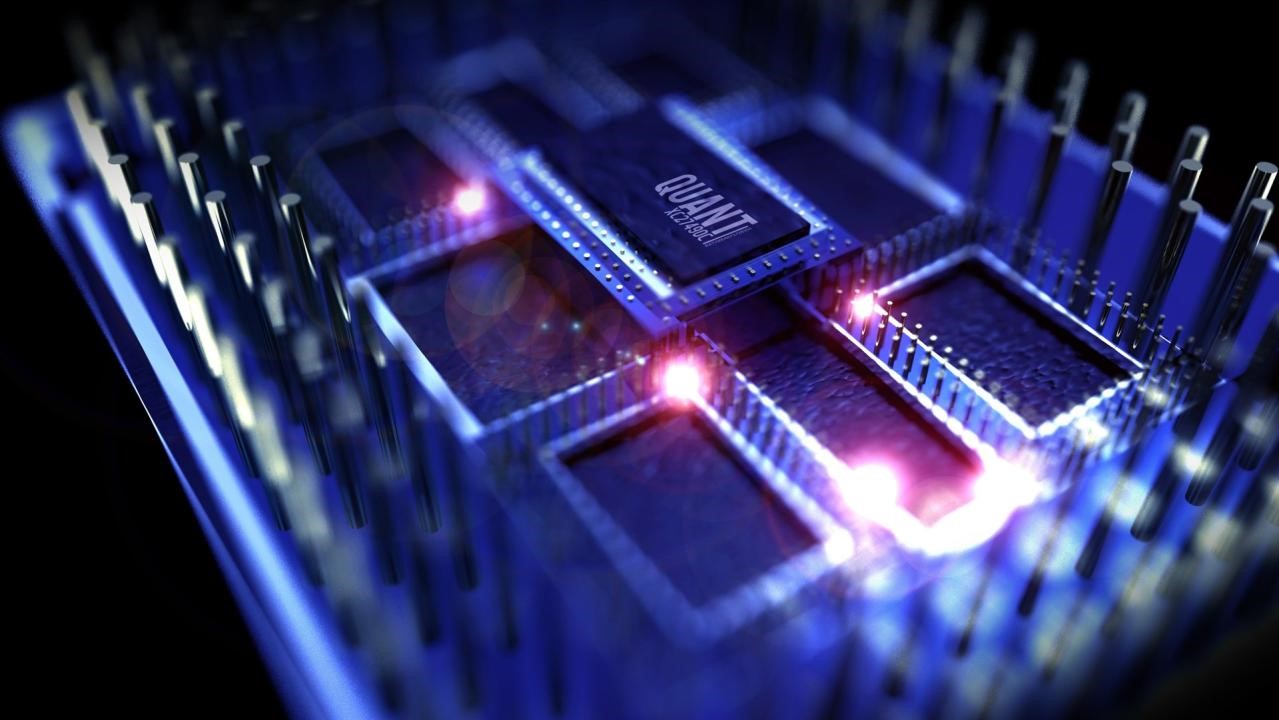Developing quantum technologies for the future
Quantum technology will revolutionize a variety of applications such as secure communication, simulation of quantum systems and quantum computation. For instance, a quantum computer, relying on quantum mechanical properties such as the superposition and entanglement of quantum states, is shown to be capable of performing calculations more than 3,000,000 times faster than the most powerful conventional supercomputer. Therefore, the quantum computer is important to speed up new scientific breakthroughs, new medications, machine learning to diagnose illnesses faster and to reach many of the Global Goals for Sustainable Development.

However, there is still a long way to go before the commercialization of such technologies since the building blocks for generating, manipulating and detecting quantum states are not fully mature. To realize future scalable photonic quantum technologies, DTU Electro develops integrated photonic platforms where the quantum states are manipulated via single photons or entangled photon pairs in compact, scalable photonic components, paving the way towards quantum supremacy.
We are driven by curiosity and a keen interest in understanding the physics of developing quantum and nanotechnology. We are particularly interested in developing new technology within quantum information science and in improving the functionality and decreasing the physical and carbon footprint of classical information technology.
Some of our research groups are looking for new types of light sources that send only one photon at a time, in and near materials that are only one or a few atomic layers thick. This may contribute to new technologies for communication at the speed of light with less energy consumption, and for new types of computation based on light rather than electronics.
To understand our smallest light sources, we need quantum physics. Our light sources and nanostructured materials may become enabling technology for the second quantum revolution that many people worldwide are working on.
DTU Electro consider collaboration with external partners as an important and strategic mission regarding the development of quantum technologies for the future. Collaboration ensures that our research-based knowledge and technologies are being disseminated to the society. Industrial collaboration is a key access for DTU Electro researchers to the research and innovation agenda in the business community.
We are driven by curiosity and a keen interest in understanding the physics of developing quantum and nanotechnology. We are particularly interested in developing new technology within quantum information science and in improving the functionality and decreasing the physical and carbon footprint of classical information technology.
Some of our research groups are looking for new types of light sources that send only one photon at a time, in and near materials that are only one or a few atomic layers thick. This may contribute to new technologies for communication at the speed of light with less energy consumption, and for new types of computation based on light rather than electronics.
To understand our smallest light sources, we need quantum physics. Our light sources and nanostructured materials may become enabling technology for the second quantum revolution that many people worldwide are working on.
DTU Electro consider collaboration with external partners as an important and strategic mission regarding the development of quantum technologies for the future. Collaboration ensures that our research-based knowledge and technologies are being disseminated to the society. Industrial collaboration is a key access for DTU Electro researchers to the research and innovation agenda in the business community.